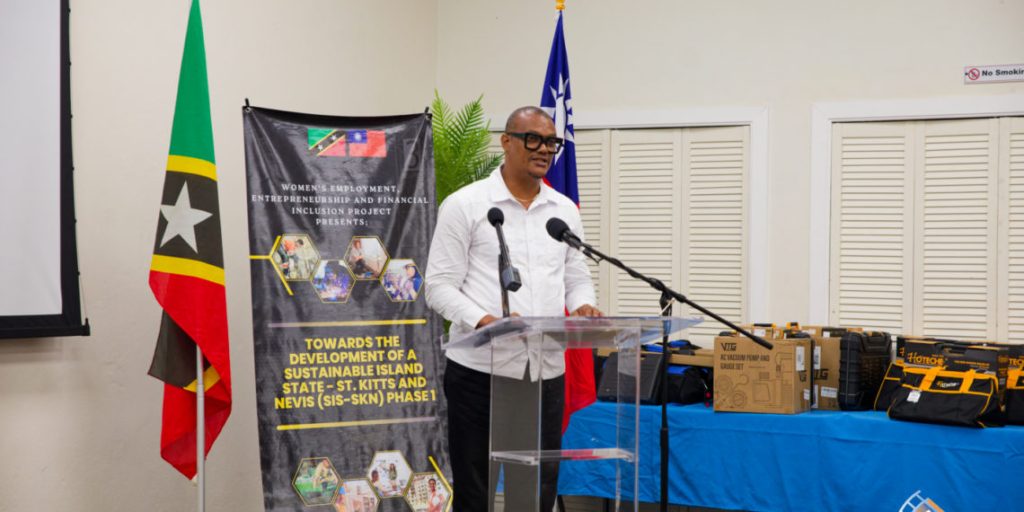Ministry of Education Establishes the Christopher Wilkin Institute of Technology
The twin-island nation of St. Kitts and Nevis is embarking on a significant restructuring of its technical and vocational education and training (TVET) landscape, aimed at consolidating resources, enhancing training quality, and expanding opportunities for its citizens. This transformative initiative, announced by Minister of Education, Hon. Dr. Geoffrey Hanley, during the recent NVQ-SKN Level 1 graduation ceremony, will see the merger of three prominent TVET institutions: the Advanced Vocational Education Centre (AVEC), the National Skills Training Programme (NSTP), and Project Strong. The new entity, christened the Christopher Wilkin Institute of Technology, is poised to become a central hub for technical and vocational training, embodying the principles of inclusivity, adaptability, and excellence, while honouring the legacy of two pioneering figures in the field.
The formation of the Christopher Wilkin Institute of Technology signifies a strategic shift towards a more cohesive and robust TVET system. The merger aims to eliminate redundancies, streamline operations, and create a more integrated approach to skills development. By consolidating resources and expertise previously distributed across three separate institutions, the government seeks to create a more efficient and impactful training model that can better respond to the evolving needs of the national economy and the global job market. This consolidated approach is expected to enhance the quality of training, improve access for students across both islands, and promote greater synergy between training programmes and industry demands.
Central to the vision for the Christopher Wilkin Institute of Technology is the commitment to embracing new and emerging technologies to enhance the learning experience and improve training outcomes. The recent acquisition of a welding simulator, a tangible demonstration of this commitment, provides trainees with a safe and controlled environment to develop practical skills before transitioning to real-world applications. This investment not only elevates the quality of training but also contributes to the sustainability of TVET programmes by optimizing resource utilization and reducing material waste. The Ministry of Education has signaled its intention to continue investing in cutting-edge technologies, including virtual reality (VR) and augmented reality (AR) systems, further enriching the learning environment and equipping trainees with in-demand digital skills.
The graduation ceremony itself, which celebrated the achievements of 38 NVQ Level 1 recipients, served as a fitting backdrop for the announcement of this significant restructuring. The graduates, representing a diverse range of vocational areas, epitomize the potential of TVET to empower individuals with marketable skills and contribute to national development. Their success stories underscore the importance of investing in human capital and providing accessible pathways to quality training opportunities. The NVQ-SKN framework, a national standard for vocational qualifications, provides a robust framework for skills development, ensuring that training programmes meet industry standards and equip graduates with the competencies required to succeed in the workforce.
The merger of these three institutions into the Christopher Wilkin Institute of Technology is not merely a structural reorganization; it represents a fundamental shift in the philosophy and approach to TVET in St. Kitts and Nevis. The new institute is envisioned as a dynamic and responsive centre of excellence, committed to providing inclusive training opportunities that cater to diverse learning styles and needs. Its focus on adaptability reflects an understanding of the rapidly evolving nature of the job market and the need for training programmes to remain aligned with emerging trends and technologies. This commitment to adaptability will ensure that graduates are equipped with the skills necessary to navigate the complexities of the modern workplace and contribute meaningfully to the national economy.
The naming of the new institute after two prominent figures in technical and vocational education, Mr. Clyde Christopher and Mr. Fitzroy Wilkin, serves as a poignant tribute to their contributions and a reminder of the profound impact of dedicated individuals on the development of the TVET sector. Their legacy will continue to inspire future generations of trainers and trainees, ensuring that the pursuit of excellence in technical and vocational education remains a core national priority. The Christopher Wilkin Institute of Technology stands as a testament to the government’s commitment to investing in its people, fostering innovation, and building a sustainable future for St. Kitts and Nevis. This restructuring marks a significant milestone in the ongoing evolution of the country’s TVET landscape, paving the way for a more integrated, technologically advanced, and impactful training system.
Share this content:












Post Comment